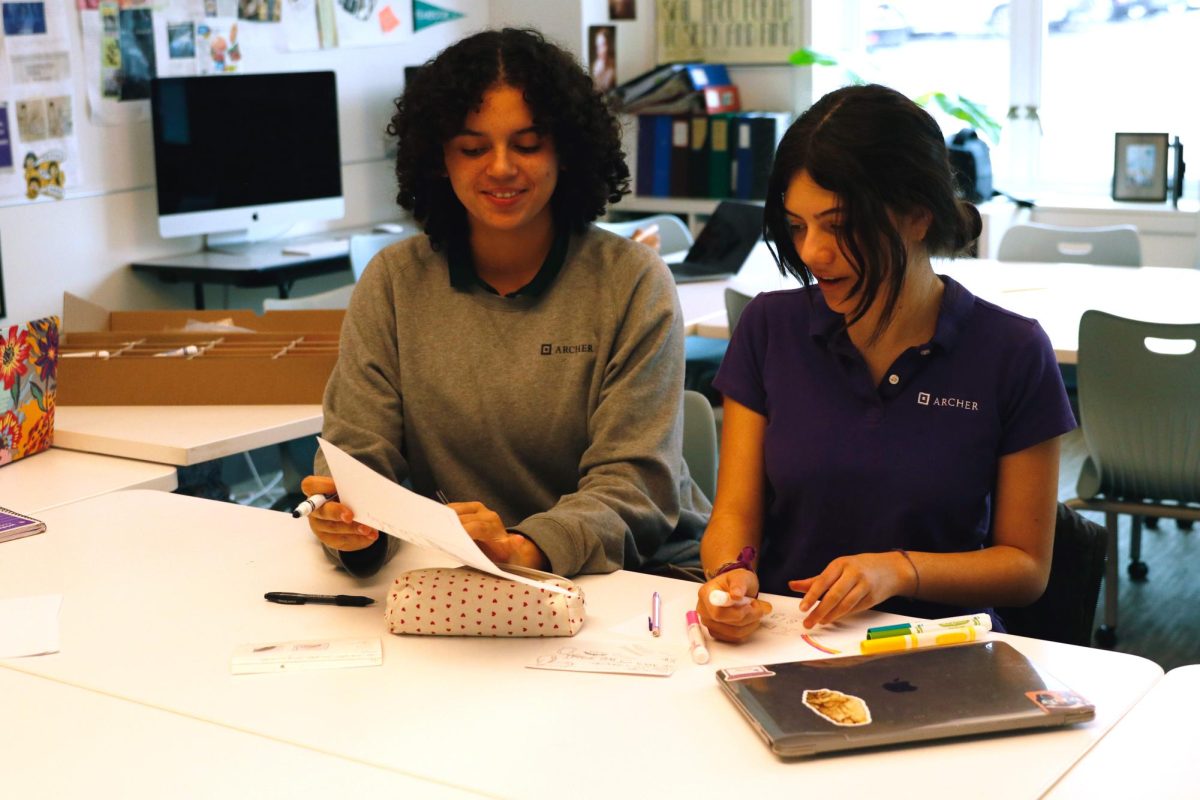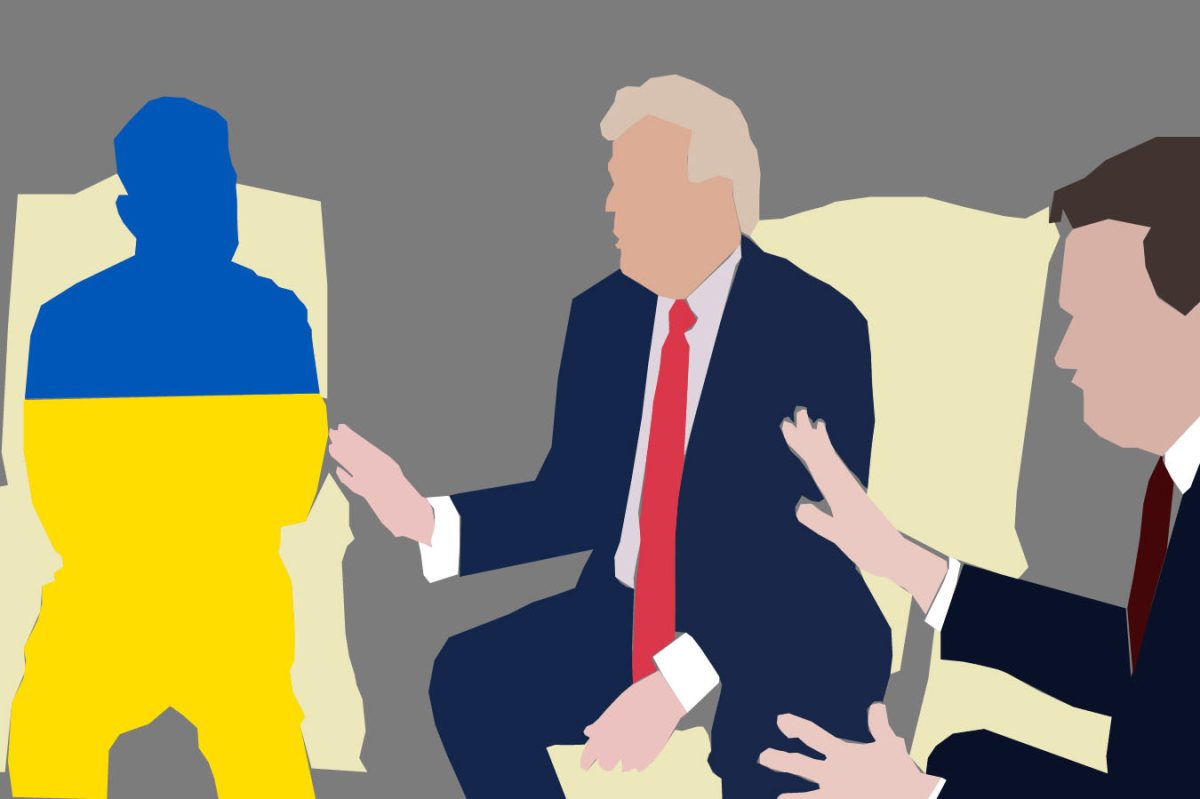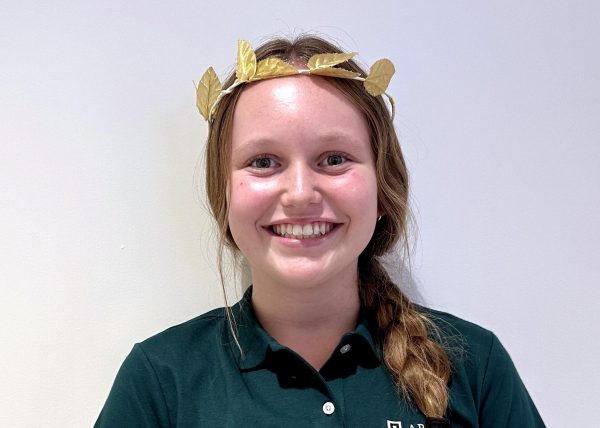One hundred years ago, the National Speech and Debate Association was started to create a space for high school students to participate in and learn about speech and debate. Today, over 3,700 schools in the United States are enrolled in this program, including Archer.
Junior KJ McPherson joined Archer’s Speech and Debate team this year. Along with the team, she is also involved in Archer’s theatre program, she discussed the difficulties of learning how to balance her various commitments. McPherson competed in the state qualifiers on March 8, where she placed second, making her eligible to compete in the statewide tournament this May.
The Oracle sat down with McPherson to talk about the challenges and successes of learning speech and debate.
What category are you competing in and why did you choose the specific one?
KJ McPherson [KM]: Our team has a cool structure. It’s very independent, so you get to pick categories. Earlier in the year I was more focused on the impromptu category, which is where you have two minutes to prepare a speech on a topic you find out right then and there, and then you have five minutes to give it. And that was really stressful for me, because I often froze up because I didn’t know what the heck I was supposed to say. But now I do “O.O.” or original oratory, which is where you persuade and inform your audience on usually a modern-day issue without the aid of any notes, and so it’s around 10 minutes. I advocate for limited teenage social media use. I chose this because A.) I’m really passionate about the topic, and B.) because this category allows for a lot of performative opportunities.
What is the biggest challenge you have faced in your first year?
[KM]: It’s a longer process than I anticipated. I knew it would be a pretty big project, but I started working on it in November, and I work on it just about every single day, from November until now, and it’s still not done. I’m also in the musical, the play and Night of Dance right now, so having to memorize all that on top of the speech has been really tough to balance. Yeah, I did not anticipate the writing process to go on as long as it has.
What lessons out of speech and debate have you improved or learned from this?
[KM]: I’ve definitely learned the power in believing what you have to say. I have a lot of competitors that I’ve seen have very well written pieces, but when they’re speaking it’s very monotone or they don’t bring a lot of passion to what they’re saying. And I think, especially as teenage girls, you have to already push some boundaries to make our voices heard. It’s really taught me the importance of believing what you are saying and that will be so much more meaningful to the audience.
How have you used this new skill that you’ve really perfected or learned about outside of class?
[KM]: I would say definitely my experience performing on stage and my experience in speech and debate, they go hand-in-hand, because I’m always learning something new from one of the experiences, which can help me improve my skills in the other and it’s definitely motivating and inspiring me as like my college process starts to come about, because I know that I’m gonna have this extra set of confidence when I’m going to, you know, potentially competitive career fields.
How does it feel to have made state qualifiers in your first year?
[KM]: Okay, going to state qualifiers, there in two days. It feels both very great and really terrible. It feels great because I do know how much work I put into this and that there is value to what I am saying in my piece. But also, a lot of these people have been doing it for three, four years. So definitely, walking into a room with people who have way more experience than me is always pretty frightening.
How have your teachers, peers, family, and friends impacted your journey and helped you do this?
[KM]: I would say, obviously, a lot of my teammates have been so gracious in giving me feedback on my speech. My coach as well, lots of feedback and support during the competition process, always checking in on me before and after rounds, asking what I think I did well as well as what I think I could improve, which I think is really important, because oftentimes we forget to reflect and we kind of just go on to the next thing. I think because of that reflection aspect that he always encourages, I’m able to not only improve my speaking from tournament to tournament, but also from the first and second round in a singular tournament. So shout out to him and also my parents. They hear me talk about this every day for the last five months—I’m sure they’re super sick of it but they give me feedback and they’ve always been super supportive and helpful in the process.










